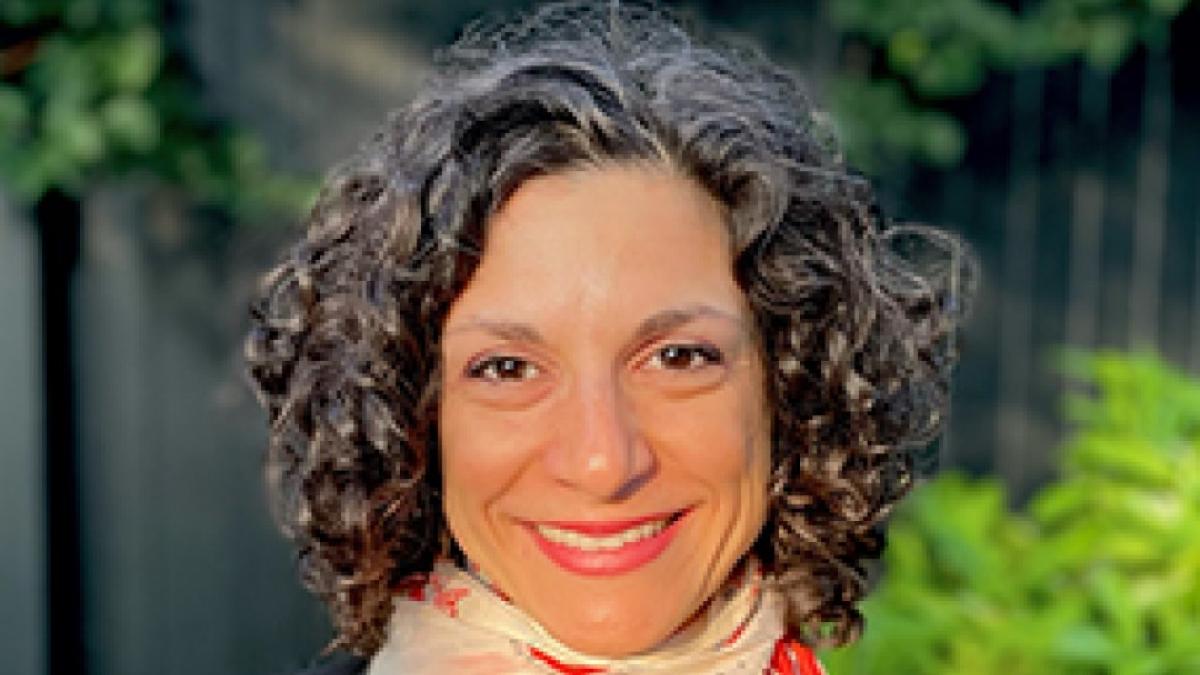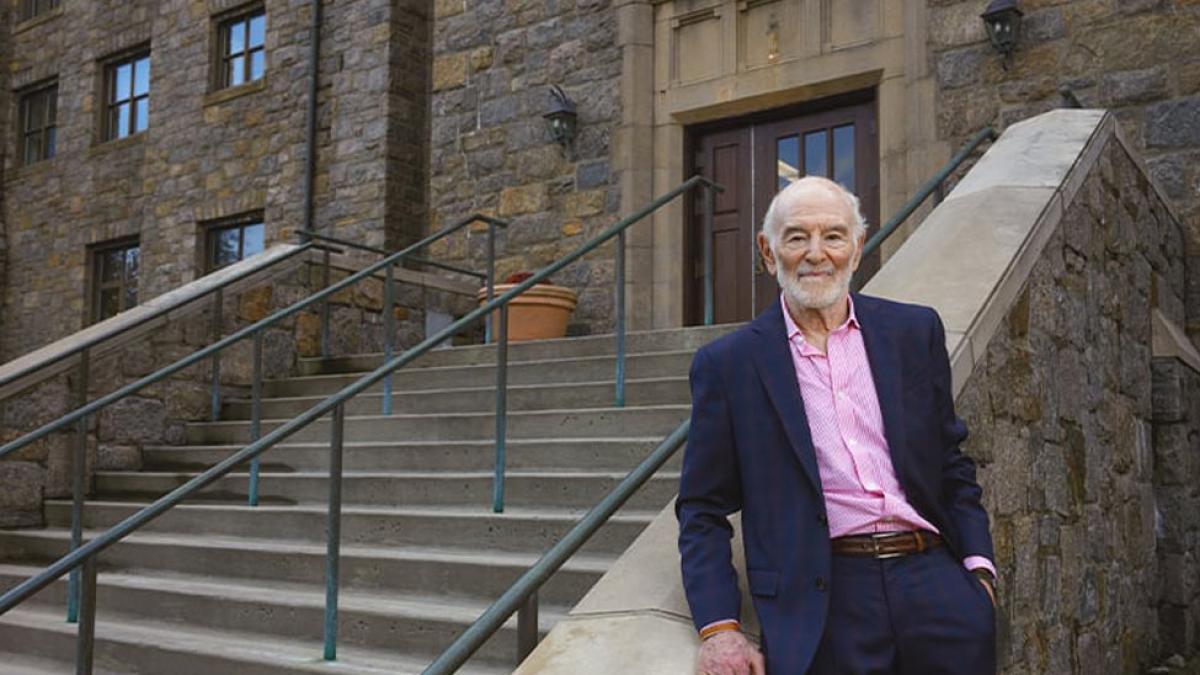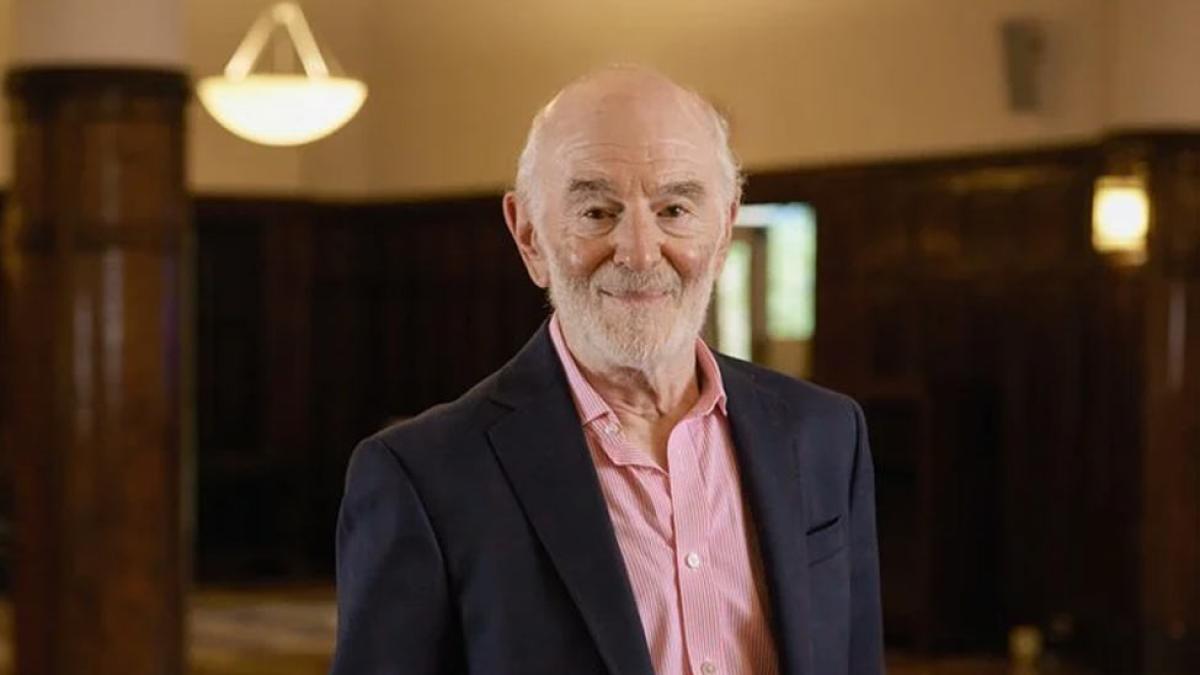The Elisabeth Haub School of Law at Pace University is pleased to announce that Kate Skolnick, an accomplished public defender and respected criminal law scholar, will join the faculty as an Assistant Professor of Law beginning in Fall 2025. Professor Skolnick will teach courses in criminal law and criminal procedure, along with an advanced criminal law seminar.
Change-Agent for Humanity: Basil Seggos '01

From a young age, Basil Seggos ’01 was always interested in the outdoors and with nature itself. As he went through high school, and college, he gained a greater appreciation of the amount of injustice in the world and was motivated to be a part of the effort to try to help resolve some of these issues, specifically environmental issues being faced by people and by the planet. Law school proved to be the perfect fit for him, and he was able to merge his passion for the environment with his sense of and desire for justice. From 2015–2024, Basil served as the longest-tenured Commissioner of the New York State Department of Environmental Conservation, leading an agency of over 3,000 professionals. Today, Basil serves as Partner and Senior Policy Director for the firm Foley Hoag in New York City. In the interview below he shares his successes as DEC Commissioner, as well as his sentiments from his time at Haub Law.
You accomplished so much as DEC Commissioner, what are you most proud of?
I am most proud of the passage of the state’s climate law and the work we have done to begin its implementation. That would be number one. Number two is rebuilding the agency and reinjecting a sense of purpose through a bolder agency budget, increased staff, and a modernized mission for the challenges over the horizon. DEC was heavily impacted by the economic downturn of the late 2000s. It took the better part of eight years to rebuild the agency to where it is now. Number three is securing billions of dollars for water quality infrastructure across the state. Starting with almost no grant money for infrastructure when I first took this job, we now have a nearly $5 billion grant fund, and the largest revolving loan program in the country. Number four is bringing a sense of environmental justice into the everyday work we do as an agency. This includes helping to guide the agency in a positive way and ensuring we are making decisions and investments with the goal of righting the wrongs of the past. Finally, the last thing would be keeping New York at the lead of important environmental issues, whether it is climate, water, emerging contaminants, or environmental justice. We have set the tone nationally for many important initiatives. And, while we haven’t solved all the state’s legacy issues, we are on the right track.
You were instrumental in the passage of the state’s nation-leading climate change law, the Climate Leadership and Community Protection Act – how did you achieve that tremendous milestone?
We are confronting an existential crisis, so the questions are: what do we do about it? What actions can we take to address the crisis and reduce burdens on front line communities while keeping the state economically competitive? Those questions served as the foundation for the law, and it will likely be one of the most challenging undertakings in state history. We’re now in the implementation phase, and while we develop new policies and investment programs, we’re also doubling down on communicating with New Yorkers. Change of any kind is difficult and change on this scale and in this polarized environment can be frightening if we don’t emphasize constant communication and stakeholder engagement. It was important for us to lay the groundwork in a collaborative way and ensure that the various stakeholder groups had a voice. We worked with environmental justice groups, industries, unions, businesses, and local government officials to create a groundswell of stakeholders who would help craft and implement solution. Goals and targets are critical, but ultimately, the process needs to be collaborative and empowering.
How did you ultimately choose the law as a career and specifically Haub Law?
I was working at the NRDC after college, specifically with the urban environmental team and I got to know a bit about Haub Law. There were some Haub Law professors who were active with the NRDC and they encouraged me to think about law school. It was the perfect opportunity to create a career centered on justice and the environment. I’m so glad that I chose Haub Law.
Which professors at Haub Law had the biggest impact on you?
I distinctly remember Karl Coplan, he was the toughest and most outstanding professor I ever had. Karl managed the Environmental Litigation Clinic at the time, and no one had a better handle of the science, facts, and the law—if you were in his clinic, you better come prepared. He very effectively put students into challenging situations and helped us learn how to become attorneys. And then of course there was Nick Robinson, an absolute legend. He was my first environmental law professor. He had a global view of the law and understanding of how to use environmental law and policy to improve lives. Ann Powers was another terrific professor. All three of them took great care and interest in their students.
What were some of your most impactful experiences during your time at Haub Law?
My time in the environmental litigation clinic was certainly formative and challenging. We students were quickly immersed in real-life cases. During my first two weeks in the clinic, I was handed a case that was headed towards an appeal in federal court. It forced me to evolve from being a mere student into a young practitioner with real clients, briefs and appearances in court. Professor Karl Coplan quickly prepared me for that opportunity. That was the first time that I really felt the ability of a person to impact change in a meaningful way in a court of law.
My time in the environmental litigation clinic was certainly formative and challenging. We students were quickly immersed in real-life cases.
What are your thoughts on New York’s recently passed Green Amendment?
One of the things I take away from it is the fact that New Yorkers value the environment—they went the polls and said yes, the protection of the environment should be enshrined in the state’s constitution. As someone who works on the environment every day in New York, I take pride in knowing that New Yorkers value these issues. Now, the courts will ultimately decide what the green amendment means. There are several cases working their way through the courts to determine the implications of the amendment.
You have an active presence on social media – how do you feel that social media helps to push forward movements for change?
Social media has been an important tool to advance environmental progress. From spreading awareness of issues to galvanizing movements, we’re fortunate to have these tools to help knit us together as a society. In the same breath, social media can also be divisive, and it is often rife with misinformation, and often much worse. There has to be a balance. Use social media as one of the ways to rapidly and widely communicate with the public, but don’t let it supplant the obligation to get out of one’s seat, hit the ground, and be present to speak to people face to face—and listen to what they have to say.
What do you feel is the biggest misconception about climate change law?
The biggest misconception about climate change law is that action is incompatible with progress. That it is hostile to jobs. And the economy. I believe it is the exact opposite. A state or nation that safeguards its environment ultimately protects its economy. All of our climate initiatives are part of a larger theme of progress for New York State.
How did you build equity into the climate law?
Equity and justice are at the heart of the climate law. The law requires us to hit our statewide emissions reduction targets, but it also requires us to ensure we are investing at least 35% of our environmental investments- with a higher goal of 40%- in our frontline communities. We have extended that beyond climate law to our water funding and the recently passed $4.2 billion Bond Act. The status quo of inequity is unacceptable, and it may take years to unpack this and do better for all New Yorkers. It means putting a greater emphasis on equity, now, focusing our work where the conditions have been the worst so we can reverse fortunes and improve health and people’s lives. That is the greatest takeaway of the climate act – the trajectory it has put us on. We now have an ability to truly improve lives of millions of New Yorkers, especially those who have been historically marginalized.
In the fall of 2022, you took a leave of absence to go to Ukraine to aid in humanitarian efforts as the Russian invasion was escalating. You recently went back on another humanitarian mission. What were those experiences like?
When Russia invaded Ukraine, I felt compelled to act. For me it wasn’t enough to speak out on the outrage of the invasion of a democratic ally. I couldn’t just sit on the sideline. I had the ability to go the extra step to provide just a little bit of help where it was needed. Fortunately, I was lucky enough to link up with some veteran and humanitarian groups who were bringing aid into the country, so I went over in the fall and became an ambulance driver for 2 weeks, all the way to the front. And I just returned from another two weeks behind the wheel of an ambulance. Our group also built playgrounds, repaired a roof on a recently bombed community center and provisioned some orphanages. I don’t believe any of us slept during those missions, it was intense. I saw the worst and best of humanity at the same time. We worked in villages that were completely shattered, apartment blocks with massive holes in them, craters in farm fields, people fleeing the invasion, babies left without parents, and yet the Ukrainians were so strong and optimistic for their future. Seeing the resilient Ukrainians and their appreciation for the global outpouring of support for their cause was inspiring. All of us can and should help in our own way, whether on the ground in Ukraine or from the states. And there is so much demand for legal assistance, whether in documenting war crimes or helping displaced persons piece their lives back together. Lawyers and law students can always play an important role to help stabilize the impacts of conflict. Getting involved in the cause of Ukraine has been life changing.
Many of our students participate in summer internships with the DEC and over the years, the DEC has employed many Haub Law graduates – what makes our students stand out?
Haub Law students are always the best prepared lawyers when they come into this agency. Because they have gone to Haub Law they are also driven by a sense of commitment to the environment. And they come in with that energy, passion, and knowledge and quite often they have gone through one of the clinics and with practical experience. If I have a choice between a Haub Law student and comparable student from a different school, my instinct is to go with the Haub Law student because I know that person will excel. Right now, in my office, we have at least 19 Haub Law graduates in our counsel’s office and in other leadership positions in the agency. A Haub Law graduate is also serving as Assistant Counsel to the Governor for the environment portfolio.
What advice would you give to a student who wants to pursue a career in environmental law?
It is the most exciting time ever to get into a career in the environment given the scale of regulation and investment in climate action, environmental justice, and environmental infrastructure. Whether you are going in to work at a firm, a company, non-legal work, or in policy, it is an extraordinarily busy field. We need the best minds on this given the scale of the challenge.
Your wife, Rose, is a 2004 graduate of Haub Law – did you meet in law school, and does she share your same passion for the outdoors and environment?
Rose and I met because of our shared passion for the environment. We had the chance to work together on a case when she was a student in Haub Law’s Environmental Litigation Clinic and I was with Riverkeeper, so it is fair to say that we owe our relationship to the negligence of a polluter (whom we brought to justice). We both love the outdoors and do our best to adventure with our family in some wild and beautiful places. She’s just as dedicated as I am to ensuring that we can bequeath to our kids a clean and healthy planet.
What are some of your hobbies outside of your profession?
Dad time. I spend most of my free time with my kids coaching their lacrosse teams, supporting their sport or art interests, and spending lots of time outside. Boating. Hiking. Fishing. Skiing. I spend my own time running, watching the Yankees, and restoring my old house. And I love reading-- nonfiction exclusively. Reality is more interesting than fiction, and history is always there to teach us about the present and the future.





